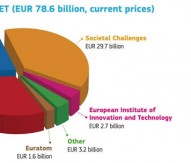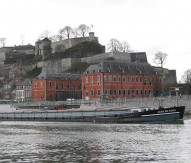
PROFILE: A more sustainable Europe?
ABIS is a global network of companies and academic institutions which partners and empowers both to invest in a more sustainable future for business in society. It has a unique position within Europe as the largest platform for collaborative research, education and thought leadership in the sustainability domain.
Between 2014 and 2016, a consortium of ABIS members will deliver a groundbreaking research project focused on the pathways and obstacles to sustainable lifestyles and the green economy in Europe. This high profile initiative, built on the successful ABIS model of harnessing business relevance with scientific excellence, will serve as a prototype for Horizon 2020 research in pursuit of the strategic goals of the European Union.
Much has been written in recent years about the negative economic impacts and societal consequences of the financial crisis which was triggered in September 2008 by the collapse of Lehman Brothers. Amidst the gloom and despondency, there were nonetheless a few silver linings to be found. Amongst others, the crisis prompted the Academy of Business in Society (ABIS) and its members to seek a deeper understanding of the potential contribution of business to sustainable globalisation – ranging from the largest MNCs to entrepreneurs.
From a corporate perspective, this agenda suggests a period of deep transformation and innovation – in core business models, systems and products, as well as a basic social contract rooted in shared value, positive impact optimisation, accountability and responsibility.
Against this backdrop, there is a clear desire from companies to work more closely with academia, developing new concepts, frameworks, methods and tools to support them in this complex process of organisational change in what remains a turbulent and difficult business environment.
Research in a new public policy context
During the past five years, the EU’s strategic policy goals and objectives have evolved along similar lines. A realisation of the scale of the societal and economic impacts of the crisis, as well as the related threats to Europe’s global competitiveness, has prompted a deep rethink of research and innovation policies as drivers of ‘smart, sustainable and inclusive growth’.
The upcoming Horizon 2020 Framework Programme will prioritise three key dimensions: Excellent Science, Industry Leadership and tackling major Societal Challenges. Horizon 2020 also recognises the importance of socioeconomic sciences and humanities (SSH) research going forward, highlighting the need for social scientists to engage closely with businesses and entrepreneurs across Europe to study the dynamics, models and overall impact of research and innovation activities.
Linking research, innovation and sustainability
These new boundaries for business and policy-relevant research are very much at the heart of the ABIS mission. The academy has over ten years of success in convening leading universities and business schools to develop innovative, multidisciplinary projects with practical value and impact for industry and policy makers.
A prime example of this approach will begin in January 2014, when ABIS and 12 of its members – led by Technische Universität München (TUM School of Management) – will embark on a groundbreaking, three-year research initiative titled ‘Sustainable Lifestyles 2.0: End User Integration, Innovation and Entrepreneurship’ (EU-InnovatE).
EU-InnovatE will address the obstacles and prospects for sustainable lifestyles and green economy in Europe through to 2050. In doing so, it builds directly on the recent findings of the SPREAD 2050 Social Platform on Lifestyles.
Supported by €4.8m of FP7 funding, it will focus in particular on the importance of end users in promoting sustainable consumption and production, effecting changes in consumption behaviour and consumer culture, reversing negative environmental trends, as well as generating sustainable lifestyles, new business models and green growth in the future European Union.
These studies will be carried out in four major domains: food, living, mobility, and energy. According to the empirical results of the Environmental Impacts of Products (EIPRO) cars, food, heating, and house building are consistently responsible for the highest lifecycle environmental impacts related to the final consumption of the EU-25. Put together, these four domains and their product groupings are essential to any reverse or major change in today’s unsustainable lifestyles in Europe.
The project will move beyond traditional studies of the role of consumers in corporate innovation processes and a marketing-driven approach to influencing consumer behaviours, values and purchasing habits.
Instead, EU-InnovatE will take a combined ‘top-down’ and ‘bottom-up’ approach to better understand future pathways towards sustainable lifestyles and green economy. The project will explore the role of governments and industry in creating innovative drivers of change in consumption patterns, and the integration of end users in these approaches.
More importantly, it will investigate the creative, innovative and entrepreneurial roles of users in developing novel sustainable products, services and systems, and contributing to the transition of sociotechnical systems. While acknowledging the value of large companies, the consortium will model and test pathways towards 2050 in which a sustainable European society is (more) user centred and user driven.
In this sense, EU-InnovatE will start to establish the boundaries of a new field of study in social sciences – one which holds significant implications for public policy makers, industry sectors and their future engagement with millions of end users in Europe who may hold some of the keys to a more sustainable future.

Professor Dr Frank-Martin Belz
Project Co-ordinator
Simon Pickard
Director General
ABIS – The Academy of Business in Society
+32 (0)2 539 3702





